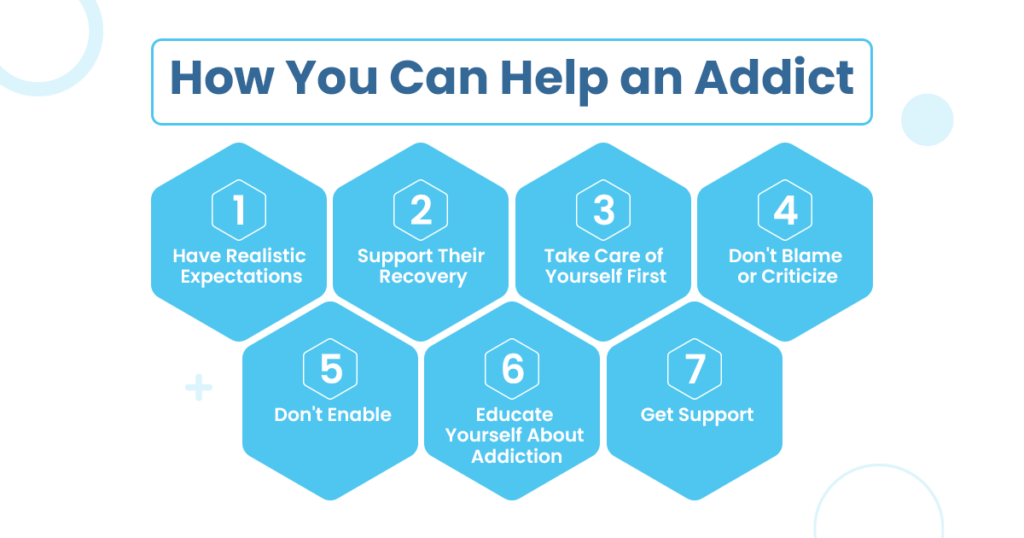
Addiction is tough. The difficulty with addiction is that not only the addict is affected by this chronic disease. Family and friends may suffer from the addict’s behavior, financial problems, legal issues, and the everyday battle to support a family member.
If someone you care about is battling addiction, you may feel powerless, terrified, confused, and want them to get treated desperately. However, talking to someone about their addiction is not always that simple. You will undoubtedly be worried for your loved one, and it might be tough to know what to do and what not to do, but it is essential to remember that recovery is the only solution. Find out how you can help your loved one take the first step.
Take Care of Yourself First
Having significant issues with substance abuse leads to a chronic illness. Family and friends usually prioritize the needs of a loved one over their own needs. This unhealthy habit leads to a lack of self-care, increased illness, and occasionally depression and anxiety.
Taking care of your physical, emotional, spiritual, and mental needs can allow you to assist your loved one more effectively on the challenging road to recovery. It is important to set healthy boundaries with your loved one during the substance use problem and not let it take over your life.
Educate Yourself About Addiction
Collect information on addictions and understand the process of the addict’s disease. Determine how it affects family and friends. Several sources are available from which you can obtain this information, such as SAMHSA.gov (Substance Abuse and Mental Health Services Administration) has a variety of informational and educational materials.
The public library and the internet contain many resources pertaining to education, support groups, treatments, etc.
Don’t Enable
There is a fine line between assisting an addict and enabling them. Sometimes, when we believe we are shielding a loved one from the effects of their addiction, we are actually allowing them to engage in potentially dangerous behavior.
According to studies, when faced with the consequences of their choices, persons with addictions are more inclined to seek treatment actively. To understand how to treat someone suffering from drug abuse or alcohol abuse, stop promising to save them every time they make mistakes.
It is necessary to establish rules and boundaries for both your own and your loved one’s well-being. This is the only part of the recovery process where tough love is beneficial since it serves as protection for you and your loved one.
Get Support
When your loved one has an addiction problem, it may cause many problems in your life. There are groups that can teach you how to deal, give resources, and assist the addict, such as Al-Anon (focused on alcohol addiction) and Nar-Anon (focused on drug addiction).
When deciding on assisting an addict, it is also advantageous to establish stress management strategies. It can help you manage the difficulties you will undoubtedly experience when assisting a friend or family member in obtaining addiction help.
Don’t Blame or Criticize
Human nature often compels us to assign blame because it is simpler to grasp an issue if its source is known. However, the causes of addictions are not that simple, and there is rarely a single factor to blame.
Most significantly, the drug addict is not responsible for their disease.
Avoid insinuating or declaring that your loved one’s addiction is their fault. Shaming or blaming a family member battling alcoholism or opioid addiction is often harmful to their rehabilitation. However, tough love may play a minor role in helping an alcoholic spouse.
Have Realistic Expectations
How can you help an alcoholic? One of the most effective methods is to have realistic expectations. Long-term recovery is not a fast fix. Your loved one’s recovery is an ongoing process that requires time, effort, and continuing support from professionals and family members. Some therapies may be effective for a while before being replaced.
If one treatment fails, it does not always indicate that other treatments will fail. It just means that you’ll have to discover one that works best for your loved one.
Support Their Recovery
You must remain involved if your loved one decides to enter addiction treatment. Continue to encourage their engagement in ongoing care and meetings and encourage them to join support groups. Be the support system they need and show that you will always be there for them.
Frequently Asked Questions (FAQs)
How do you help a person who has an addiction?
Here are some of the tips that you can use to help an addict:
– Educate yourself about addiction
– Seek counseling or therapy
– Don’t enable
– Seek specialty help
– Take care of yourself
– Expect difficulties
– Don’t shame the addict
What do you say to someone who has an addiction?
Have faith in their self-awareness. Believe them if they claim to be addicted. Someone who confides in you about their addiction probably trusts you if they do so. Respect how challenging it might be for them to discuss their addiction.
What are the four signs of addiction?
– Common signs (risky behaviors, legal trouble, neglecting responsibilities, etc.)
– Physical signs (bloodshot eyes, changes in appetite, impaired coordination, etc.)
– Behavioral Signs (suspicious behaviors, changes in hobbies, etc.)
– Psychological Signs (mood swings, personality changes, appearing fearful, etc.)
How can you help an addict?
You can help an addict by:
– Briefly let them know that you think they have a problem
– Becoming rigorously honest with them
– Not saying “that’s okay” when it’s not okay
– Not blaming, complaining, or criticizing them
How can I help a person who is addicted to drugs?
Here are some suggestions on how you can help a person who is addicted to drugs:
– Educate yourself
– Offer your support
– Encourage them to get help
– Support recovery as an ongoing process
– Take care of yourself
Find Help For Addiction at The Haven
Your loved one may experience several relapses before they find an effective treatment plan that keeps them on track. However, if you believe their situation is out of control, let The Haven treatment center assist you in finding professional help for their active addiction.
We offer effective detox programs as well as behavioral therapies such as cognitive behavioral therapy which help patients better understand their addiction so that they can make a positive change. If your loved one is having a hard time admitting to their alcohol or drug problems, The Haven can also aid in setting up an effective intervention for the families of addicts so that you can get them on a recovery plan with ease.
We aim to enhance the quality of life for those afflicted by substance use disorders. Our expert medical professionals and physicians create individualized treatment programs to facilitate our patients’ physical, emotional, and spiritual healing.
For more information, contact our team at (561) 328-8627 today!






